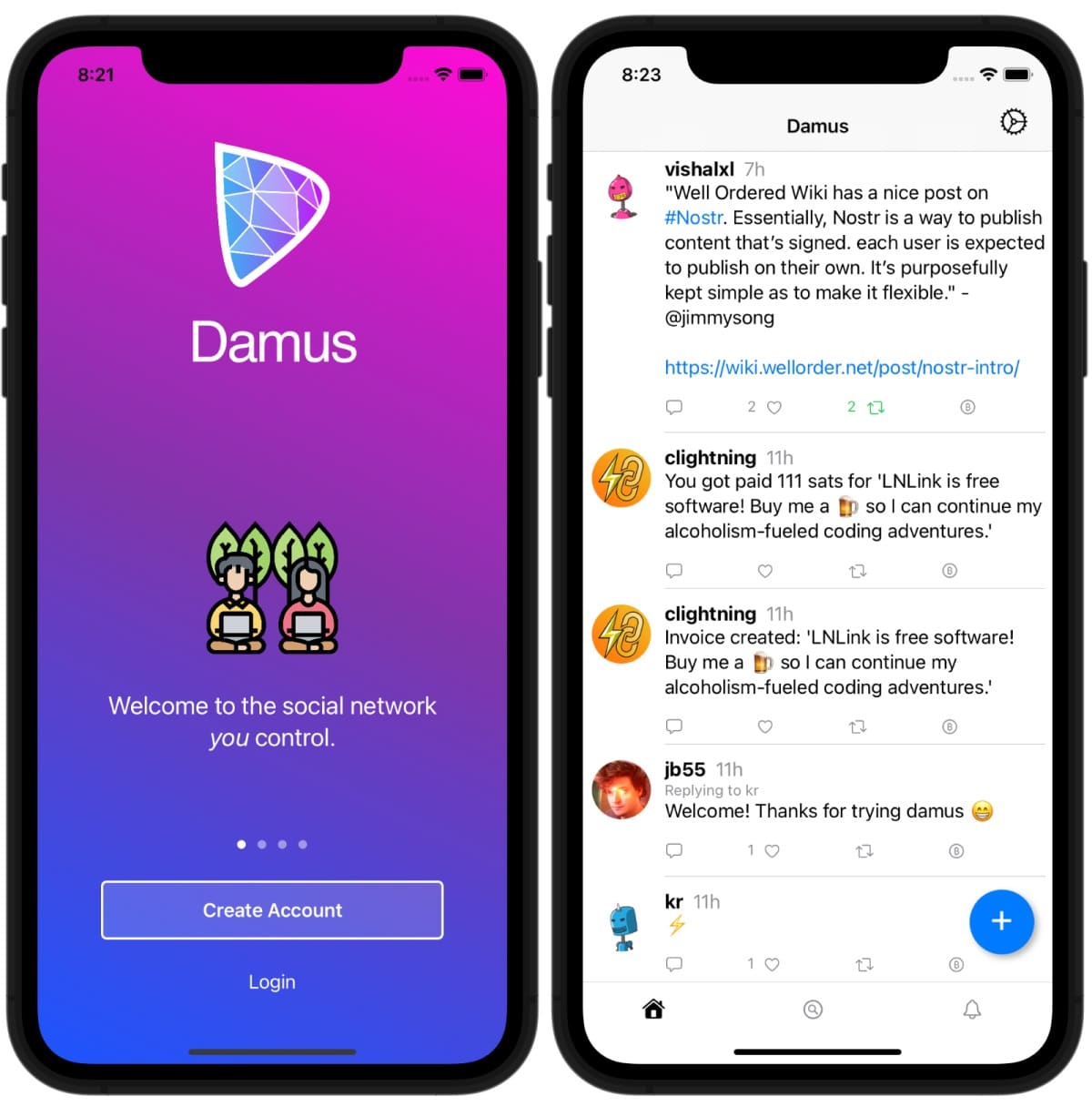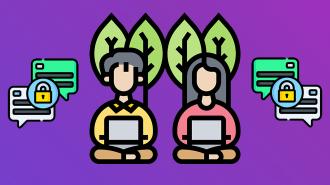Shortly after Elon Musk took over Twitter, tweets with a mysterious string of numbers and letters flooded many feeds. As many users grew wary of the social network, they looked for alternatives, and Nostr, where your identity is just a 63-character key, was one of them. These tweets let their followers know where to find them on Nostr.
Nostr is unlike any traditional social network you’re familiar with. It’s not even a social network. It’s a three-year-old decentralized protocol, like the one that powers cryptocurrencies, on top of which developers can build all sorts of apps, such as a social network. Until recently, hardly anyone knew about Nostr outside the esoteric web3 community. In fact, when I looked it up, Google asked me if I meant “nostril.”
But then came Jack Dorsey’s tweet.
Nostr is unlike any traditional social network you’re familiar with. It’s not even a social network.
In December 2022, Twitter co-founder and former CEO, Dorsey tweeted that he had donated 14 bitcoins — a little over a quarter million dollars — to the anonymous founder of Nostr, who goes by the pseudonym @fiatjaf.
The funding sparked a wave of new Nostr identities; only a couple of days later, Musk announced Twitter would ban people from promoting other social media accounts, including those on Nostr. (The ban was soon dropped.)
Though there’s no dearth of open-source social media platforms, @fiatjaf tells me the motivation behind building one from scratch was twofold.
In its most fundamental form, Nostr allows people to exchange signed messages.
First, @fiatjaf says, it must be censor-resistant. Today, even platforms like Mastodon that promise to offer a safe haven from centralized social networks are nothing more than a collection of silos — each subject to the host’s rules and ideologies. Second, each person’s identity should be independent of apps so that it’s inter-portable. If someone is fed up with Twitter and wants to switch to Facebook, for example, they should be able to do it in an instant, without starting from a blank profile or losing their network — similar to how you can email anyone, irrespective of whether they’re on Gmail, Outlook, or Yahoo.
Nostr, which stands for “Notes and Other Stuff Transmitted by Relays,” doesn’t rely on a central server, nor is it a peer-to-peer architecture. In its most fundamental form, it allows people to exchange signed messages. It does so through a network of relays, which are servers anyone can sign up to run.
When you want to publish a note, you sign it with your 63-character keys — everyone has two, one public for discoverability, and another private to secure messages — and dispatch it to the relays. If you want to follow another Nostr user, you tell a Nostr-powered app their public key, and it will check with the relays and fetch their latest updates.
“This is the power of open protocols. Competition will make us all better and better.”
William Casarin
The reason censoring Nostr is difficult is that you have the option to save your messages to as many relays as you’d like, and apps will look for your friends’ messages in a bunch of relays at the same time. Plus, the apps themselves are nothing more than interfaces for showing these messages. Nostr-based apps can stand out from each other in the unique ways they parse and list these messages. But they don’t control the data or your identity, and you can sign into any Nostr client with a single pair of keys — no registration required.
William Casarin, the developer behind Damus, a popular iOS app for Nostr, says the platform’s interoperability pushes him to constantly innovate, because once his client no longer offers the best user experience on iPhones, people will move on to a better client.
“This is the power of open protocols,” Casarin adds. “Competition will make us all better and better without stagnation like the Twitter client.” Casarin was on Mastodon for years but when his pro-Bitcoin group was banned from the rest of the network, he switched to Nostr.

Though social network apps like Damus have so far been the highlight of Nostr, its simple note-based protocol can be used to design any app that depends on bits of user data, including instant messaging, Reddit-like discussion boards, and even games like chess.
Getting started on Nostr is complex, to say the least, and the best source of information on it is a GitHub page. But once I was past its hacky setup, I found it compelling. The ability to not go through a lengthy sign-up form each time I tried a new Nostr app was freeing, and because your data is picked from the fastest of the 250-plus relays, clients fetched messages quicker than any other social network I’ve used.
Apart from Dorsey, there are a few high-profile names among its 300K+ unique identities, including Edward Snowden, who’s been urging his followers to move to Nostr.
Anyone on Nostr can effortlessly transact Bitcoin micropayments.
But many of Nostr’s enthusiastic users are drawn to it for another reason: its compatibility with the Lightning Protocol. Thanks to that, anyone on Nostr can effortlessly transact Bitcoin micropayments, which its creators envision could allow people to easily tip creators and pay for content and other services, without ads or subscriptions.
Dorsey, for example, has been buying people drinks on Nostr and even offers Bitcoin prizes to those willing to develop new Nostr like a GitHub alternative.
Dr. Subhayan Mukerjee, a new media professor at the National University of Singapore and investigator at the Centre for Trusted Internet & Community, discovered Nostr via Dorsey’s tweets and though he agrees an open protocol for social media would be wonderful, he expects it to run into critical technical as well as business barriers down that road.
Dr. Mukerjee believes social media platforms will lose their “individuality” in such a system and will have little incentive to decentralize their business. A Nostr-like service will need regulation to survive, he adds — much like how porting of cellular numbers between carriers is required by law, even though it wasn’t in the early days of cell phones.
“You would need legislation to keep these platforms from devolving into majoritarian cesspools of harmful content.”
Dr. Subhayan Mukerjee
Content moderation will also prove to be a challenge. Many expect Nostr to leave it up to governments to censor illegal activities, similar to how the internet and websites work. @fiatjaf, however, plans to let relay operators decide what they want to restrict, but how officials will keep track of relays remains to be seen.
“You would need legislation to keep these platforms from devolving into majoritarian cesspools of harmful content,” Dr. Mukerjee told Freethink.
At the moment, though, @fiatjaf, who himself juggles a separate full-time job, says Nostr isn’t ready for mass adoption yet, and there’s a lot left to figure out. As traditional social networks continue to struggle and people realize they have stagnated due to their increased political interventions, he hopes both companies and users would be willing to give Nostr a shot.
“All these factors will give us enough network effect such that we can compete with the giants and ultimately win,” @fiatjaf said.
We’d love to hear from you! If you have a comment about this article or if you have a tip for a future Freethink story, please email us at [email protected].






